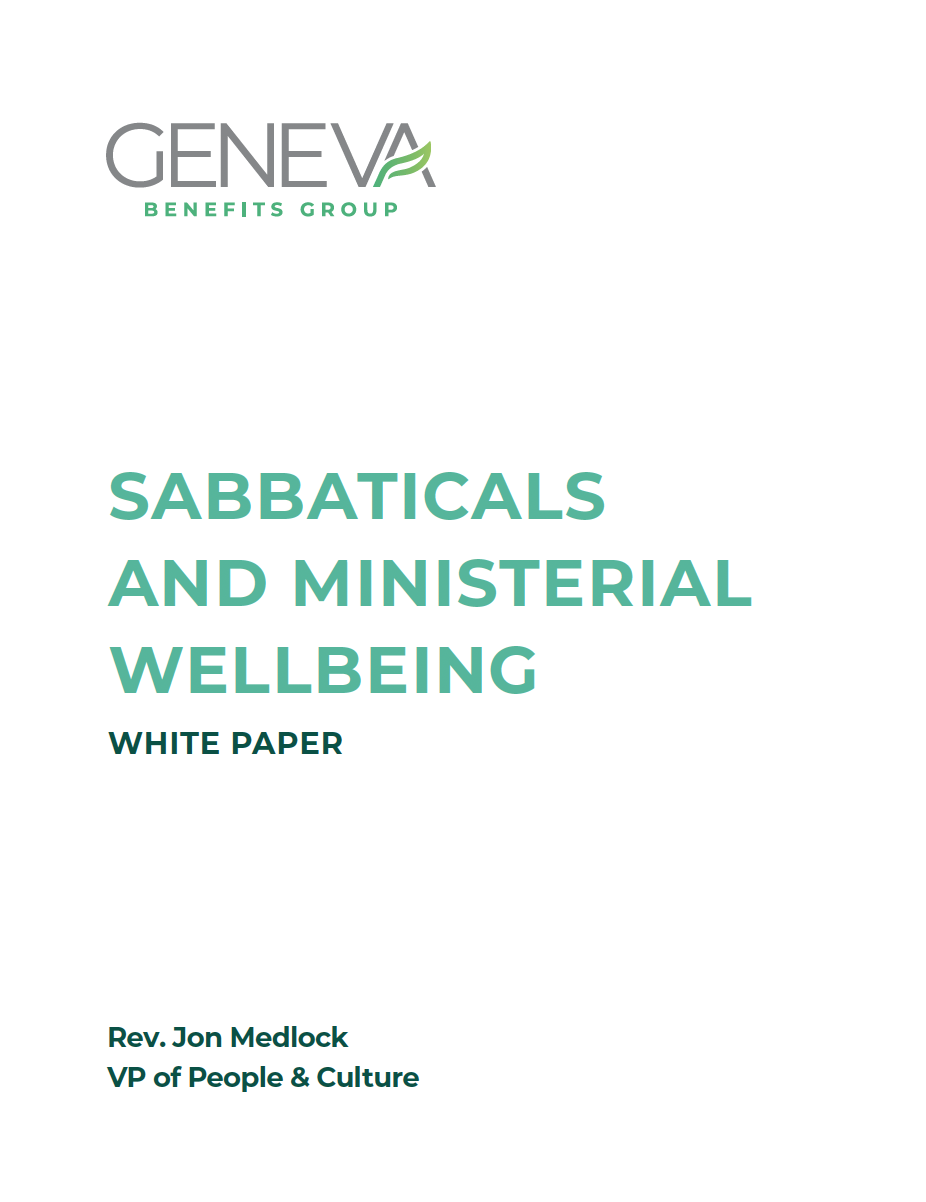Best Practices for Planning Pastoral Sabbaticals
Why Sabbaticals?
God created us to work and rest, and hardwired rhythms of both into his creation and codified them in his law. Rest is good, and when we fail to rest, our work suffers, as do our relationships with God, self, and others. Unfortunately, due to the nature of the job, it is difficult for pastors to unplug from their work and rest. For many, rest feels selfish, like choosing your own needs over the needs of others. But when pastors fail to care for themselves, they eventually find themselves unable to care for others.
Sabbaticals offer pastors and their families invaluable seasons of rest by offering time away from the duties and pressures of ministry. During this time, they can focus on themselves, their families, and their relationship with God. Once completed, they can return to their congregation refreshed and renewed for the next season of ministry.
What does it look like to provide a sabbatical for pastors? We’ve created a checklist overviewing some common issues to consider when planning and executing a pastoral sabbatical.
1. How to Plan and Execute a Sabbatical
A properly planned sabbatical needs goals. These goals should be discussed in advance with elders so that everyone involved has a shared vision of what a successful sabbatical looks like.
- Professional goals: will you complete a course, conduct research, or seek to develop your ministerial skills in a specific way?
- Personal goals: how will you better yourself in terms of your diet, exercise, sleep, hobbies, and overall physical health?
- Relational goals: how will you structure time to improve your relationship with spouse, children, relatives, or friends?
- Spiritual goals: what can you do to seek God’s presence and grow in your dependence on him?
As you design your goals, make sure they are specific and measurable. Once your goals are agreed upon, you will be able to design how your time will be spent and perhaps where it will be spent.
2. How to Communicate a Sabbatical
When you announce the sabbatical, it is wise to have elders from the church involved. It will give confidence to church members that their needs have been properly considered in the planning process. Share with the congregation the goals of the sabbatical so they know how to pray for you.
Once the sabbatical begins, people in the church will need to know the proper boundaries during the sabbatical of their communication and interaction with you. Practically, they will also need to know who to contact when they need pastoral care.
3. How to Begin and End a Sabbatical
Create moments on both ends of your sabbatical to mark the beginning and conclusion. It can be as simple as a season of prayer during a service or perhaps a special fellowship event to welcome the pastor home. This will provide you an opportunity to share the progress you made toward your goals.

Download our practical guide on pastoral sabbaticals.
A sabbatical raises many practical questions for church leaders and church members. Our guide addresses some of the most common issues to help you structure and communicate the sabbatical to benefit all involved.
FAQ
Why is a sabbatical important?
The pastoral vocation is uniquely challenging. Work like sermon preparation, preaching, teaching, counseling, and day-to-day administrative oversight of the church are difficult and time-consuming enough. But pastors bear the additional burden of being “always on.” They get calls at night and on weekends, and wherever they go, they are seen in their pastoral role. For long-term wellbeing, pastors need occasional seasons away from these all-consuming demands provided by sabbiticals.